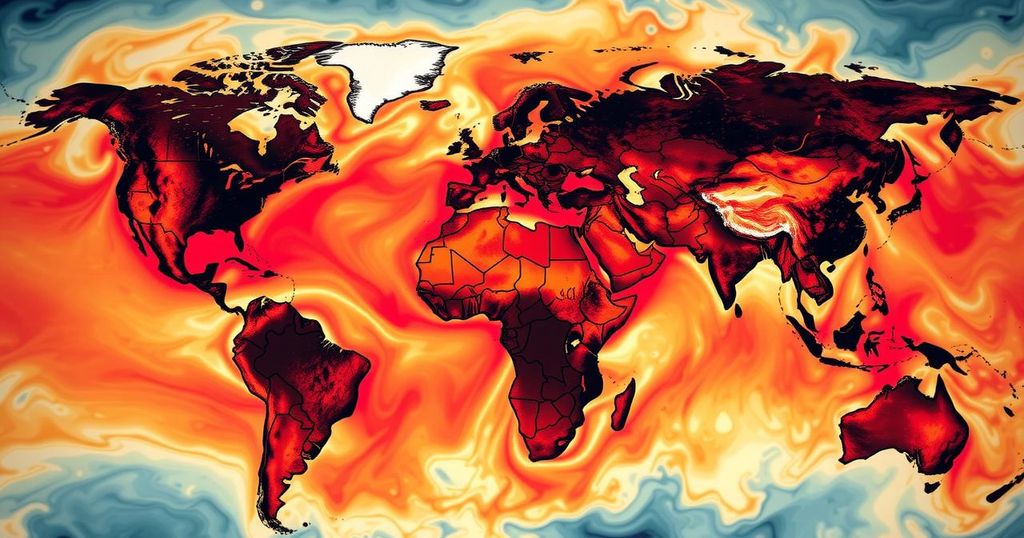2024 Climate Change Report Reveals Unprecedented Global Warming Levels

The year 2024 marked the hottest year on record with an increase of 1.6 degrees Celsius above preindustrial levels, according to the Copernicus Climate Change Service. This surge has resulted in intensified severe weather phenomena worldwide. Experts attribute these climate changes primarily to human activities, particularly fossil fuel emissions, coupled with increasing energy demands from modern technology.
In 2024, global temperatures reached unprecedented levels, surpassing preindustrial averages by 1.6 degrees Celsius, marking the hottest year recorded since 1850, according to scientists from the Copernicus Climate Change Service. This alarming increase comes just as warnings from global leaders about climate change have intensified. The consequences of this temperature surge have become evident with rising instances of severe weather events ranging from catastrophic wildfires in Los Angeles to widespread droughts and floods worldwide, threatening millions of lives. Climate experts emphasize that human activities, particularly emissions from fossil fuels, are major contributors to this escalating crisis, compounded by increased energy needs driven by technological advancements such as artificial intelligence.
The phenomenon of climate change has garnered global attention, with rising temperatures threatening ecosystems, economies, and communities. The United Nations, particularly through its COP meetings, has emphasized the urgent need to limit global warming to 1.5 degrees Celsius above preindustrial levels to avert the most devastating impacts. However, the recent climate data reveals that this threshold has already been breached, raising concerns over the effectiveness of current policies and the reliance on fossil fuels, amidst calls for immediate action to mitigate further change.
In summary, the year 2024 has set alarming records in global temperature increases, highlighting the critical need for urgent climate action. The consequences experienced globally illustrate the profound impacts of climate change on natural disasters and human lives. As the world surpasses the crucial 1.5 degrees Celsius threshold, it becomes imperative for leaders to take effective steps to reduce greenhouse gas emissions and implement sustainable practices.
Original Source: www.cnet.com







